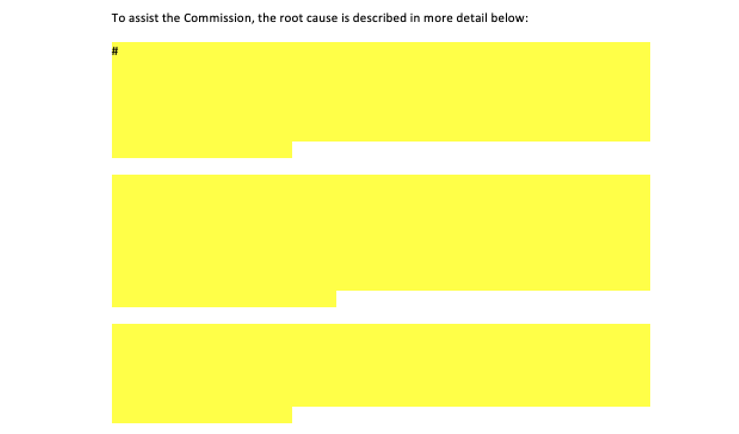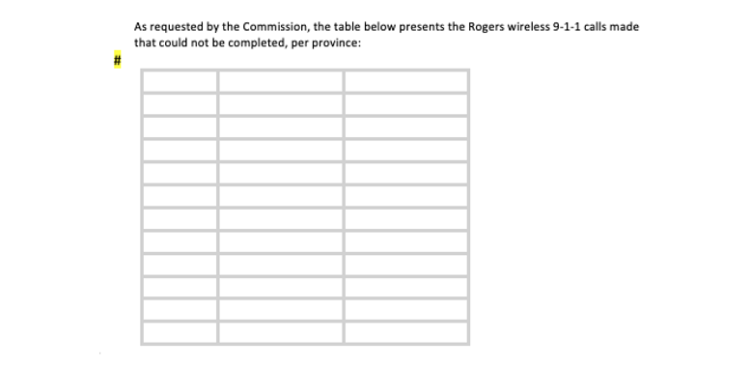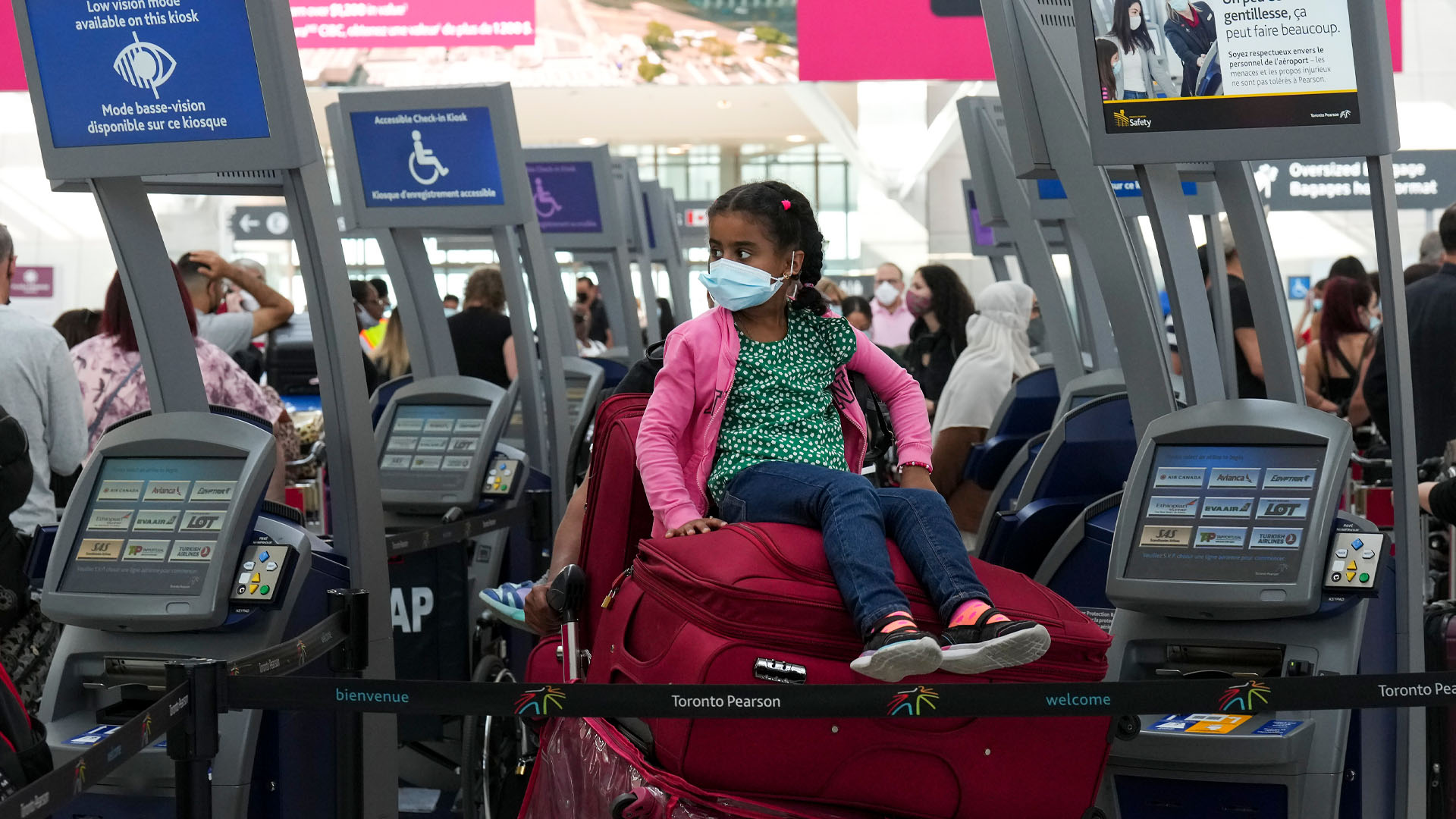
During the summer, several Canadian airports were described by the flight tracking service FlightAware as the most delayed in the world. Against this backdrop, many looked for relief to the Canadian Transportation Agency (CTA), the regulator whose mandate includes consumer protection. The CTA is charged with enforcement of the Air Transportation Regulations under the Canada Transportation Act.
What would the regulator do, many wondered, to address the delays plaguing Canadian airports?
The answer? Basically, nothing at all.
It was yet another example of the federal government setting up regulatory agencies that then fail to enforce the rules.
During the summer fiasco, the CTA issued almost no tickets to airline carriers for their conduct. In fact, a recent Access to Information Act request shows that between March 1, 2020, and Sept. 12, 2022, the CTA gave out only 16 tickets to carriers for non-compliance with the Air Transportation Regulations.
The sum of all corporate tickets under the regulations during this two-plus-year period was less than $69,000. The CTA has also never given out a penalty at the maximum amount ($25,000) to any carrier.
As Global News reported in August, the CTA did not even issue fines to any airline carrier for failing to give customers refunds for flight delays and cancellations under another set of regulations, the Air Passenger Protection Regulations – despite countless horror stories of travelers unsuccessfully seeking to obtain refunds.
This occurred even after airlines were clearly skirting their obligations to customers by invoking “safety” exceptions to justify delays and other shenanigans. Another access to information request showed fines handed out under those regulations between March 1, 2020, and Sept. 12, 2022, totaled just $72,450. (Although none was for refunds, 27 fines were given out for other conduct like false advertising and issues related to the reasonable quantity of food.) Only one ticket was given out at the maximum amount.
These amounts are chump change for carriers.
Also, by way of comparison, the annual salary of the chairperson of the Canadian Transportation Agency is at least $278,900.
Why and how did the CTA — an entity intended to protect air passengers — do such a poor job in executing its most basic task?
The answer is partly found in a lack of enforcement, which is not unique to the CTA. As most Canadians know, and as the “Freedom Convoy” taught all of us, laws are only as good as their enforcement. Unfortunately, far too many of Canada’s enforcement and regulatory watchdogs have shown trepidation vis-à-vis the corporate actors they are supposed to regulate.
Take for example the Canadian Radio-television and Telecommunications Commission (CRTC), which has done little to rein in telecommunication companies. Following the Rogers outage on July 8, 2022, the CRTC requested technical information about the outage, which Rogers provided in publicly available and confidential filings. Although the Telecommunications Act specifically empowers the CRTC to release confidential information in the public interest, the CRTC has not done so in this instance.
Instead, the public has been left with Rogers’ heavily redacted explanations of the outage, such as this one:

The outage also had a massive impact on 911 services. For example, on July 12, 2022, CBC reported the story of Shane Eby’s family. As a member of Eby’s family was dying on July 8, another family member was forced to leave her side in her final moments in an unsuccessful bid to find someone with functional cell phone service. Precious moments were lost due to the outage. In response to requests for information about the disruption, Rogers responded by providing the following information to the public:

For its part, the government’s approach to avoiding future outages has been to let the industry self-regulate by agreeing to back up each other in the event of a future outage. This is hardly a new approach. Based on another Access to Information Act request, the Innovation, Science and Economic Department (ISED) revealed that in the three years preceding the July 8 outage, ISED never conducted briefings to prepare for the possibility of outages – even though this happened in 2021.
This type of hands-off approach is why Canada’s internet and cell phone plans are among the costliest in the world. In Australia and Israel, governments have responded with expanding mobile virtual network operator access to spectrum as a solution. By contrast, the Canadian government has repeatedly declined to intervene to force the use of such solutions.
Instead, ISED and the CRTC are overseeing consolidation in the sector, with adverse effects on consumers. In response to an Access to Information Act request for briefing notes about the impacts of the proposed Rogers-Shaw merger, ISED shared the following note:

In the absence of meaningful private enforcement mechanisms and proactive government regulation, three things need to change.
First, the government needs to start appointing individuals who will serve the public interest, not their own industries. The appointment of former Telus lobbyist Ian Scott as the CRTC chairperson in 2017 epitomized the wrong approach.
By contrast in the United States, President Biden has been naming young regulators who are zealous about protecting the public interest and do not have relationships with the industries they are supposed to regulate. His appointment of 31-year-old Lina Khan to the role of chair of the Federal Trade Commission injected energy into commission and is already delivering results.*
Second, the Canadian government needs to do everything it can to make federally regulated industries more competitive. It should start by following Ontario and California’s approaches banning non-compete agreements. The advantages of banning such agreements are many.
Finally, the culture of making fanfare announcements about new laws that all too often go unenforced needs to stop. The government has been criticized for using “criminal justice legislation as a political communication tool,” as with its passage last December of a law offering enhanced protection for health-care workers. (Since its passage, it has never been enforced.)
Rather than passing new laws that are bound to become nullities, the government needs to get serious about using the ones it already has on the books. In short, the government needs to take enforcement seriously. Canadians deserve regulatory watchdogs that will serve the public interest.









